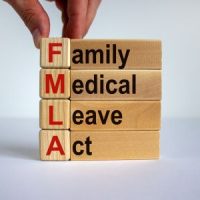Who Does The FMLA And California FMLA Cover?

The Family Medical Leave Act (FMLA) and California’s version of the law is a powerful law that requires that employees be given time off to care for sick loved ones. It is so unique, because you, as the worker, do not have to be sick or ill at all—you only need to have a family member who needs care.
What the FMLA Covers
The FMLA requires that you be given time off to care for any family member who may have a serious health condition, time off related to pregnancy, and for any emergencies tied to military service. Leave must be provided; you cannot lose your job—however, the employer doesn’t always have to pay you for your time off.
Some employers do offer this kind of pay while you are on leave, as a benefit to employment. Additionally, the State of California has some disability and paid family leave programs, which may compensate you for time off to care for a relative.
What Illnesses are Covered?
Like many federal laws, there are often arguments because terms in the law are not well defined.
For example, an employee must get time off to care for a family member with a “serious health condition.” This is generally defined as any treatment that requires a hospital stay, or which incapacitates a person and requires continuous treatment by a health care provider. It can also include any ailment that involves permanent or long term incapacity. But there is no one clear and comprehensive list of qualifying illnesses or diseases.
What Relatives are Covered?
There are also disputes over who is covered—that is, what kind of family member must be sick for the employee to get the benefits of the FMLA.
For example, the law says that time off must be provided to care for a “spouse, parent, child or sibling.” That can be somewhat limiting, and notably, it doesn’t say grandparents.
However, court cases have said that “parent,” as used in the Act, applies to anybody who acted like a parent to the employee (which is good, but still doesn’t directly and automatically cover employees caring for grandparents).
To see who is a “parent” under the FMLA, courts will ask whether the employee is or ever was dependent on the sick relative, or whether commonly accepted parental duties were exercised by the sick relative.
California’s Protections
The good news is that the State of California does require that leave be given to an employee so long as the employee’s grandparent has a serious illness—and, California law even expands the FMLAs protections to any “domestic partner.”
California is also helpful because unlike under the federal FMLA, where the issue isn’t clear, California law is clear that you don’t need to take all your time off continuously or all at once.
Contact the San Jose employment law lawyers at the Costanzo Law Firm today for help if you feel your employer is not treating you fairly because of a sick relative or you need time off because of an illness or disease.
Sources:
calcivilrights.ca.gov/employment/family-care-medical-leave-guide/#:~:text=Which%20family%20members%20may%20I,with%20a%20serious%20health%20condition.
edd.ca.gov/Disability/
